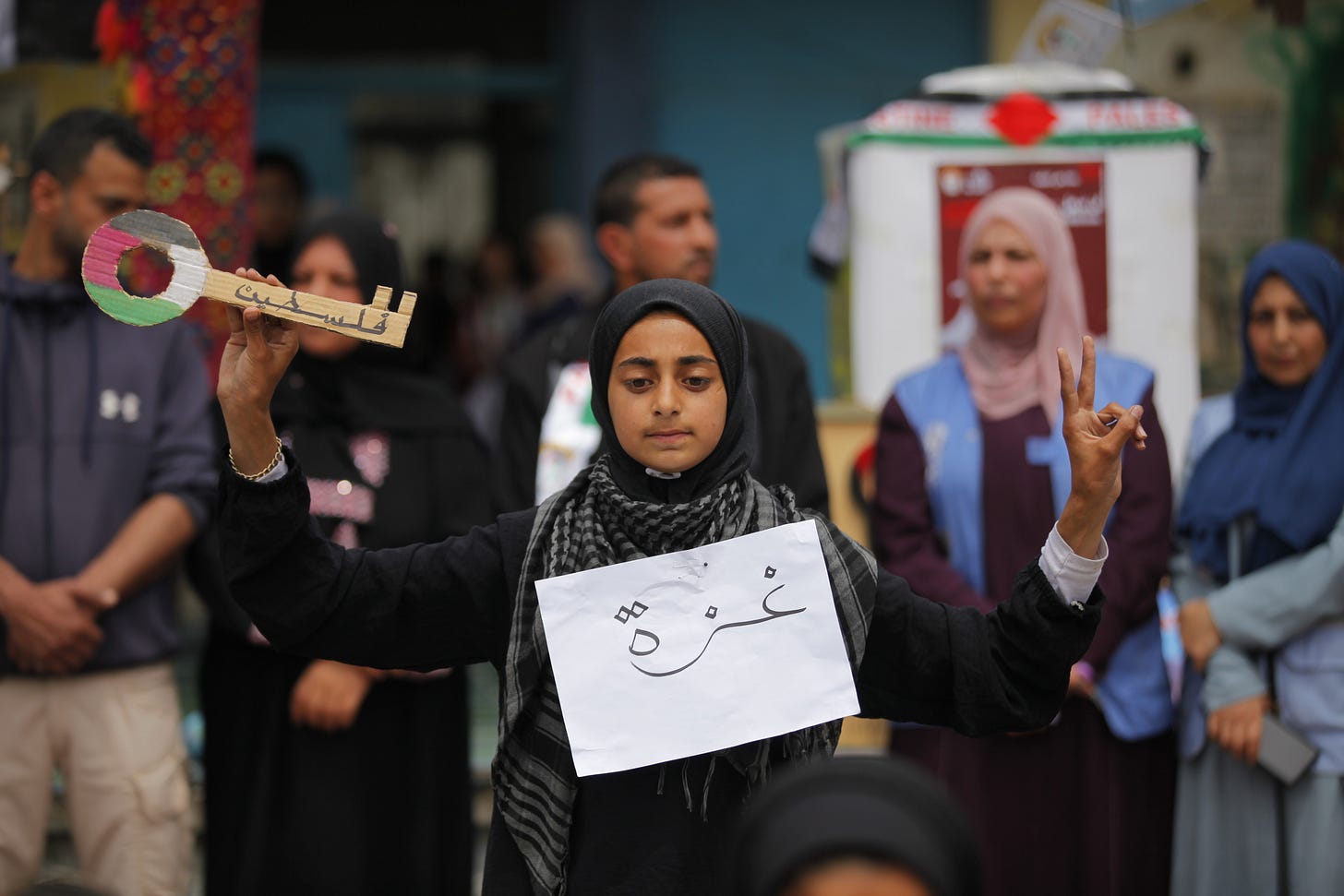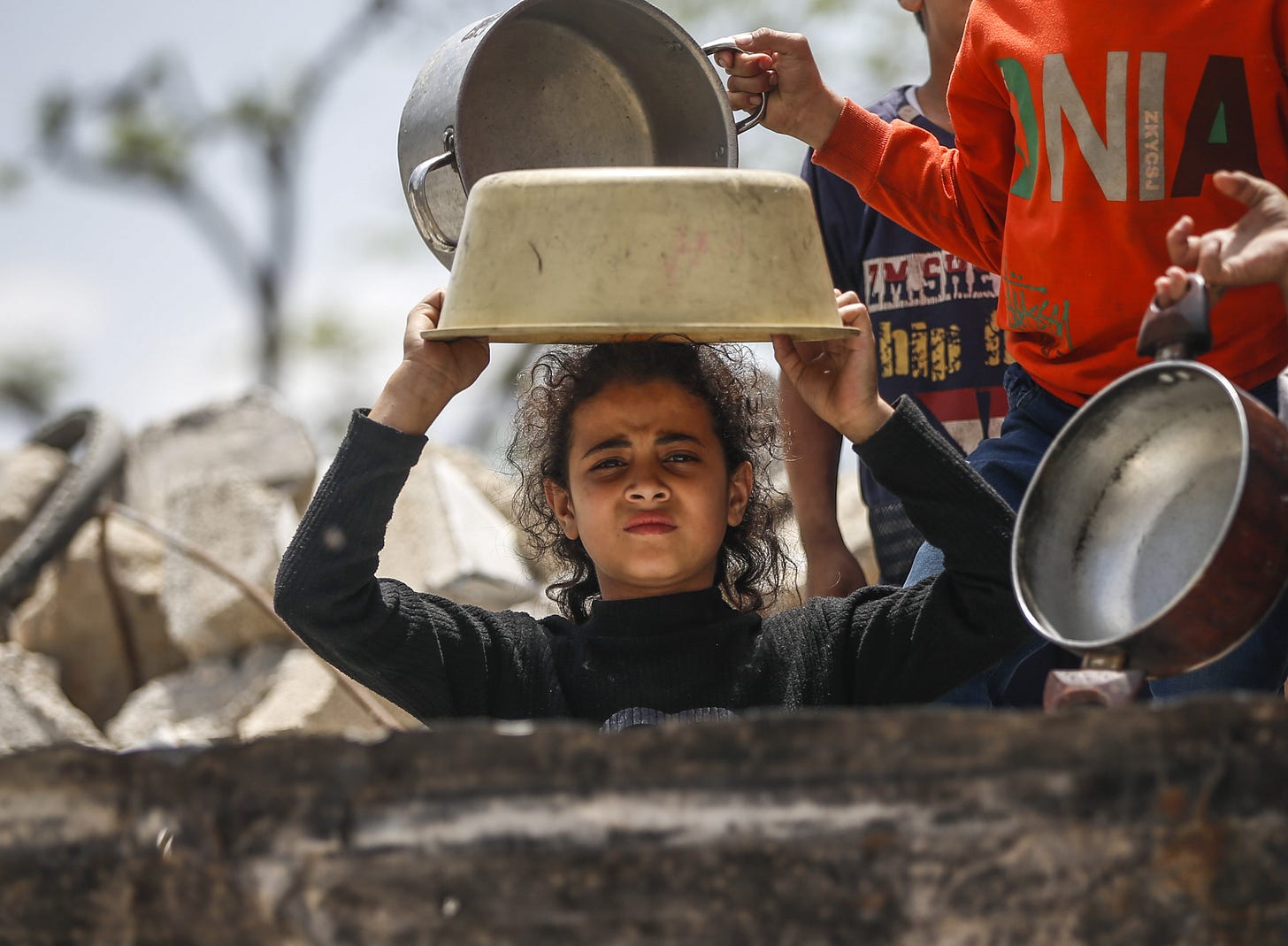The 1948 Nakba and Today's Gaza Genocide Are Two Sides of the Same Coin
On Nakba Day, Diana Buttu reflects on the suffering in the Strip and on how, for 77 years, Palestinians have been invisible to Israelis – and much of the world.

“I am finding it difficult to stay positive,” reads the message sent to me by Maram, a young girl in Gaza. “Our situation is very difficult, and my mother does not want me to tell you.”
This, of course, is code for “I’m hungry; I’m starving.” Of course, she is hungry. She has remained in the northern part of the Gaza Strip during the entire genocide, unable to flee from her area. Israel decided, on March 2, to block all supplies from entering Gaza – aid paid for by international donors, none provided by Israel, of course, despite its obligation to do so. This means that for more than two months, no food, no water, no medicine, and no fuel supplies have entered the Gaza Strip.
Already, 57 Palestinians, mostly children, have died from Israel’s forced starvation, while 1.1 million children remain at serious risk of starving. The World Food Programme (WFP) announced that its warehouses are barren, and the few operational soup kitchens are severely rationing their last stocks. Back in early April, WFP announced that all of the bakeries it supports had been forced to shut down due to a lack of flour and fuel. Since fuel is needed to run the desalination plants that provide Gaza’s drinking water, an estimated 91% of the population also faces increasingly acute water insecurity. According to the UN Office for the Coordination of Humanitarian Affairs, Gaza is now entering the longest period without relief aid over the last 19 months.

The images are too painful to look at. I think back to my days living in Gaza, and to Palestinian culture in general. Our lives and events are bookended by food: whether festivals celebrating our lettuce, our apricots, our unique cauliflower, or festivities surrounding the olive harvest and the sumptuous meals prepared to showcase these new crops, or the meals cooked to mark times of happiness and sorrow. So much of Palestinian culture centers around the food and the joy that comes with imbibing the bounty of our land. Anyone who has ever come to Palestine knows this well. I cannot imagine what Maram, her siblings, and her mother, Sarah, are going through, spending their days struggling to find the most basic means of survival.
What Do I Tell Her?
After a bit of back-and-forth messaging, Sarah gets on the phone. “Diana, tell me. What do Israelis say about what they have done to Gaza and about what they are doing to us and our children?”


